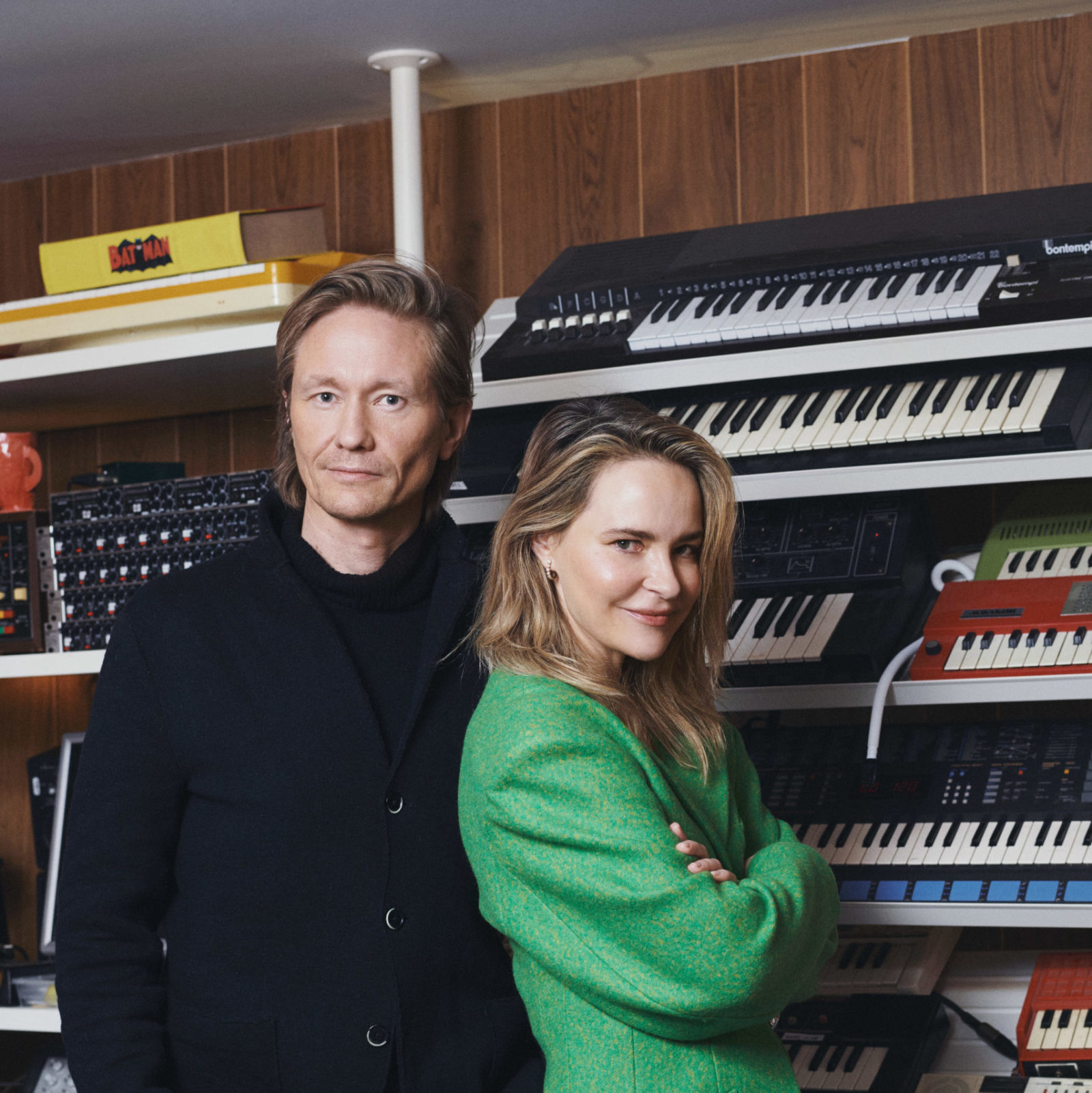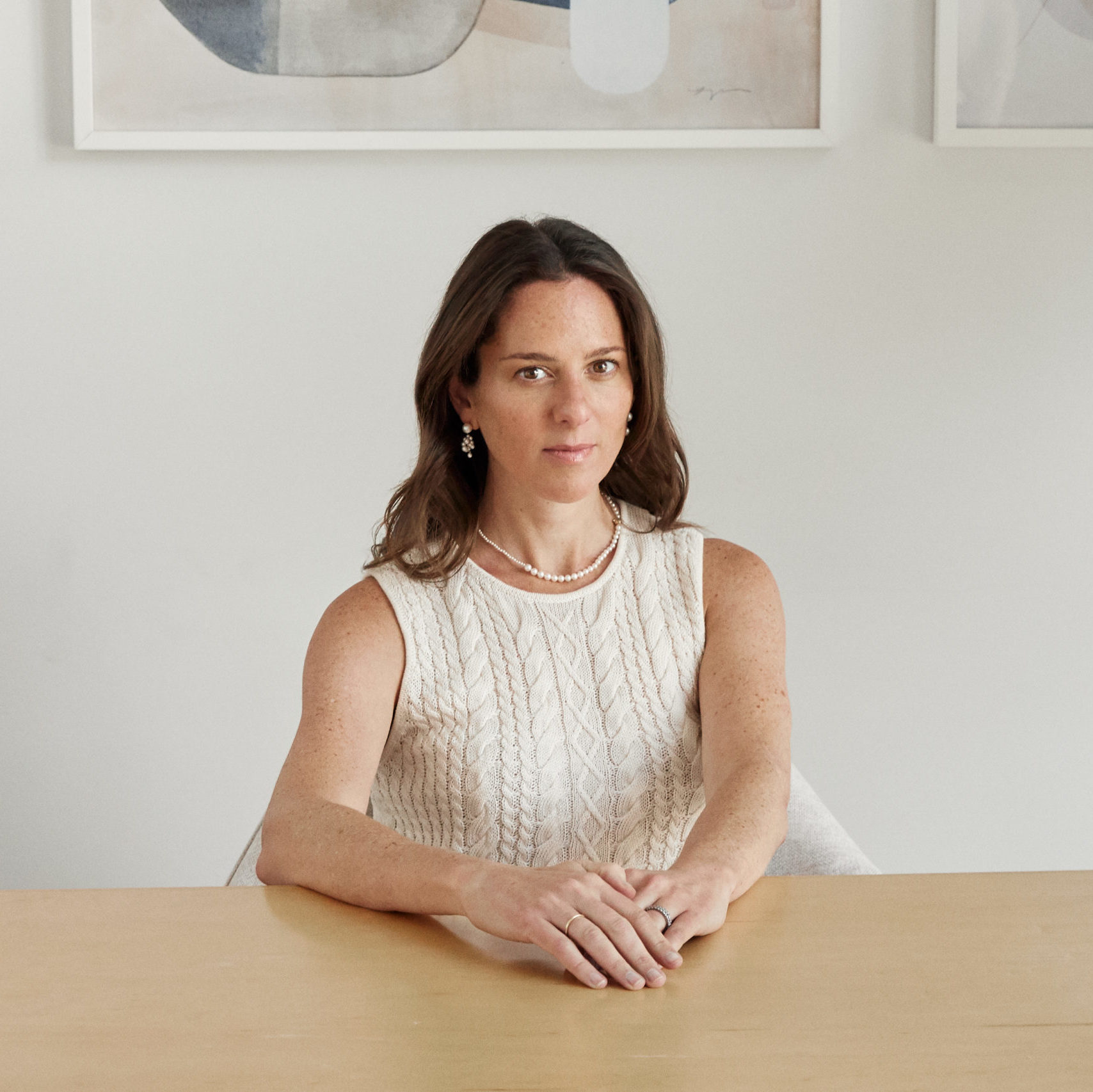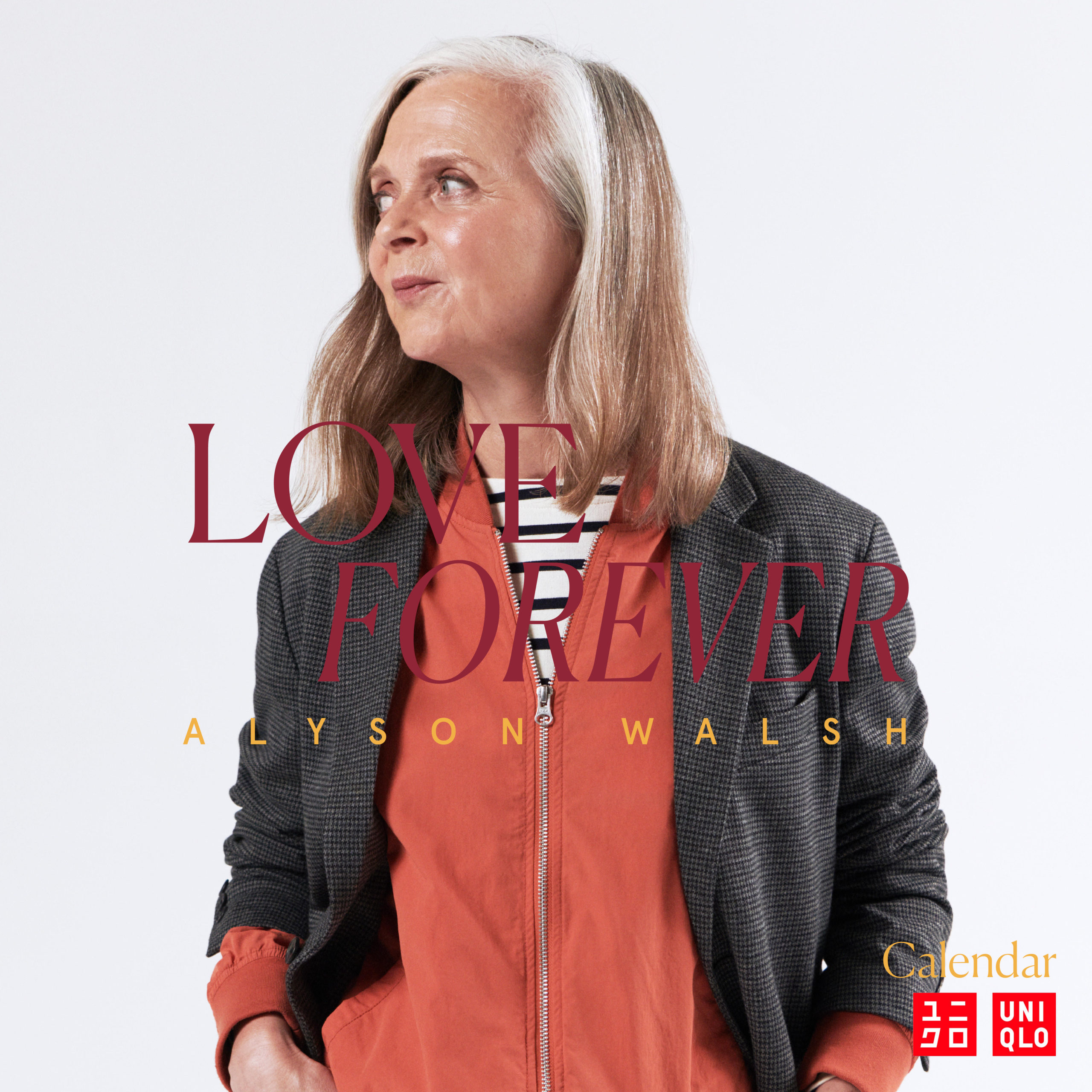March | Feature
The Rise of Made to Order
Meet the love-forever labels promoting delayed gratification over fast deliveries and tackling fashion’s waste problem in the process.
Emma SellsIn February this year, designer Patrick McDowell announced he was shaking up his eponymous label’s business model. Making official an approach that he and his team had long been working with, in line with their sustainable ethos, he’d decided that the demi-couture pieces showcased in his AW24 show would be made in limited quantities and strictly to order. “We’ve created a model that works for a future-facing brand,” he explains. “It’s been clear since the beginning that we needed to create pieces in a way that was kinder to the planet while giving clients what they want, ensuring we make the right pieces and also avoid overproduction.”
Making to order is by no means a new concept, but it is gaining traction once more as a waste-reducing counterpoint to the pace and volume of the fashion industry’s offering. Its appeal is straightforward: whether pieces are delivered in limited batches or on a customer-by-customer basis, the idea is that it takes the guesswork out of production so that labels can conjure just enough rather than a just-in-case surplus. It’s a model that suits smaller businesses, too, which means there’s a strong focus on quality and longevity. And, for those of us shopping, thanks to the weeks’ and sometimes months’ lead times, it’s an exercise in delayed gratification, a way of buying that, it is hoped, encourages doing so thoughtfully rather than on impulse.
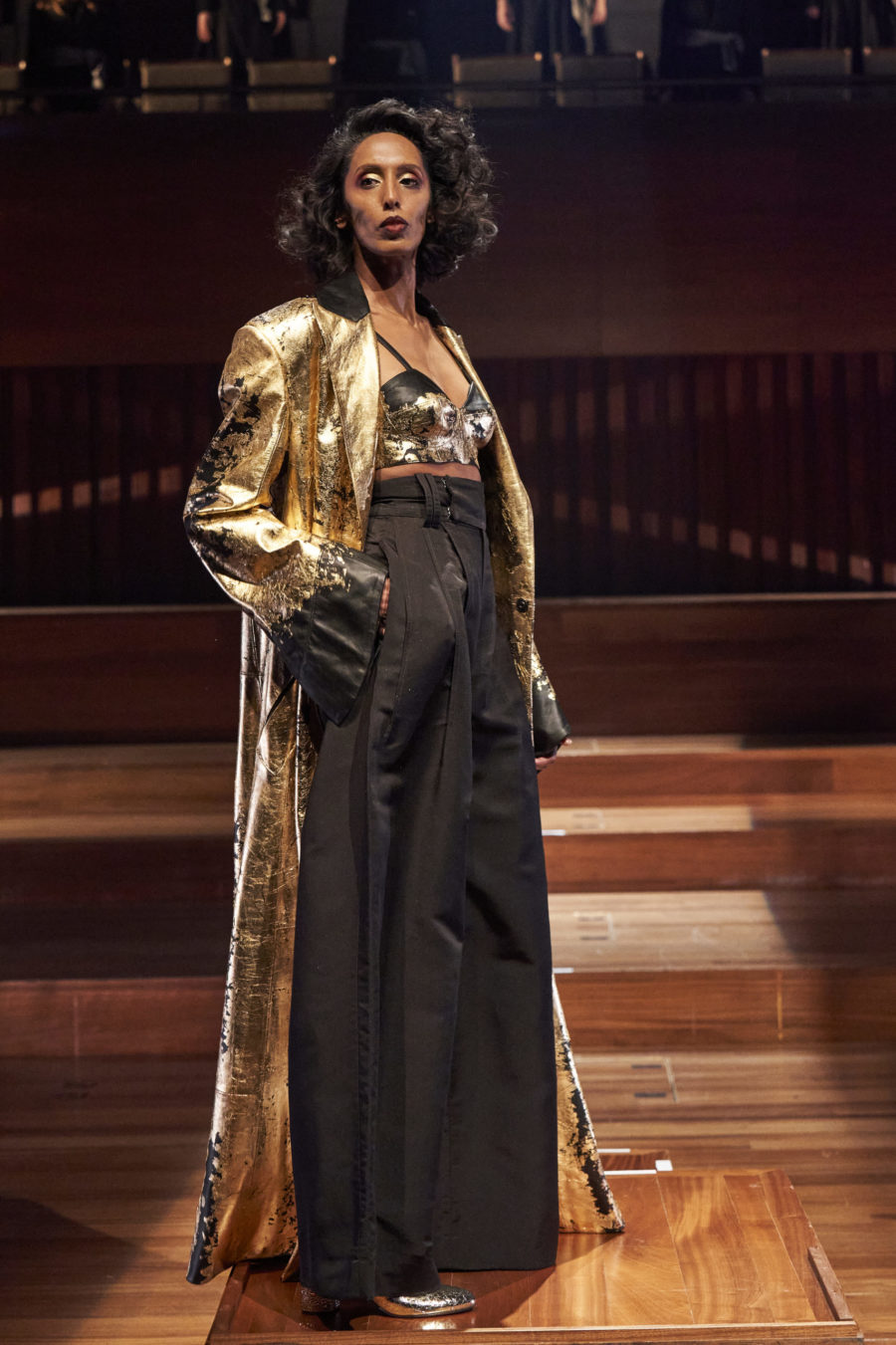
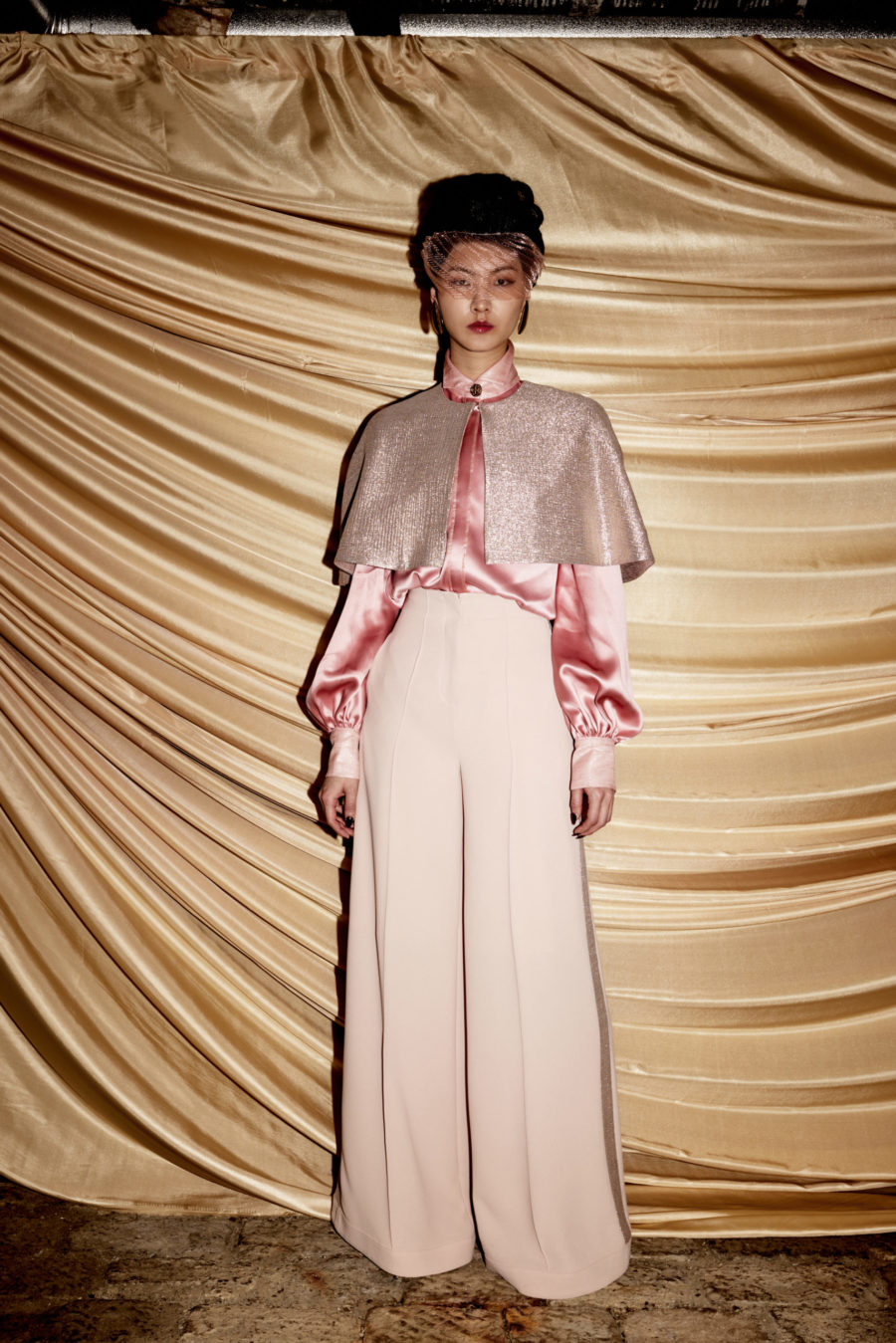
L: Patrick McDowell x Guildhall AW24 R: Sabirah AW24
“The fashion system is based on the scale of units of sale and so the emphasis is on quantity not quality,” explains McDowell. “We pre-decide the amount of each garment before we release the collection, from 1-50 pieces per style. Our numbers are small, which means we can create pieces that fit and suit you perfectly and then keep in touch to offer redesign, repair or restyling for a loved one when the piece no longer works for you.”
Made to order can go hand in hand with made to measure, particularly at the luxury end of the fashion spectrum. Order one of McDowell’s exquisite pieces, say, and it will be hand-fitted to you across multiple appointments. The same is true of carefully crafted suiting. Visit contemporary women’s tailors The Deck and, alongside the ready-to-wear offering, you can choose one of their core silhouettes cut to your size and style. Even when the offering isn’t exclusively bespoke, many brands try their hardest to make sure that the fit works for you, the better to ensure that you’ll wear the piece for as long as possible. The flawless gowns from Sabirah, the modest occasionwear label created by Deborah Latouche, are crafted from luxe, deadstock fabric on a customer-by-customer basis. Customers receive a virtual fitting appointment with each statement-making dress and can visit a studio for a more personal service. ELV Denim, meanwhile, will make any of its core shapes to order in your desired size and tailor them to fit, as needed.
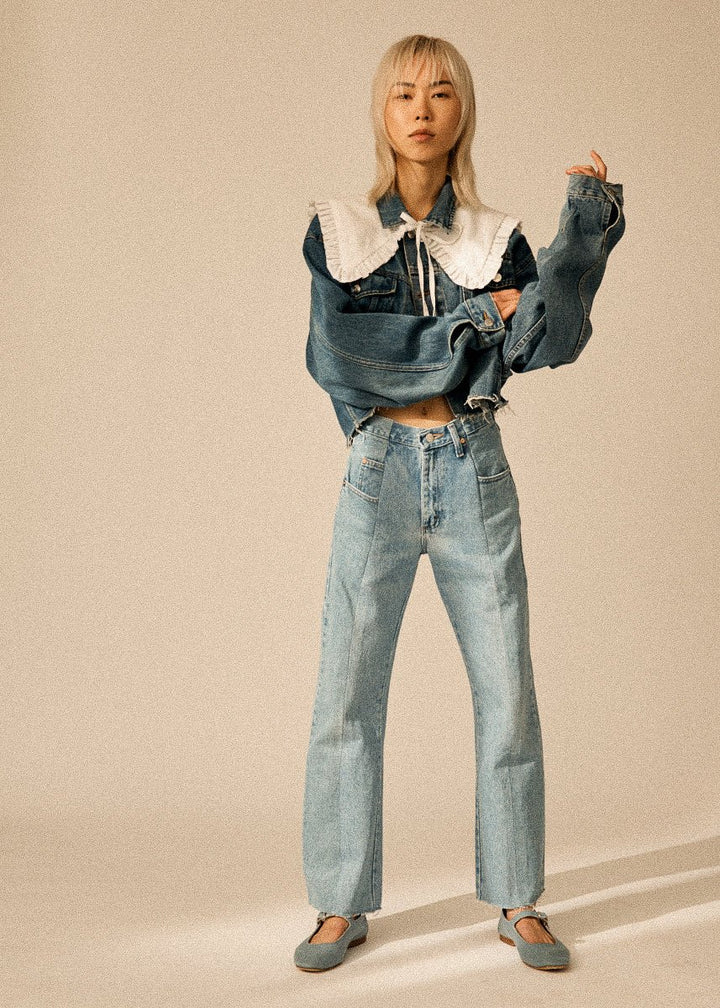
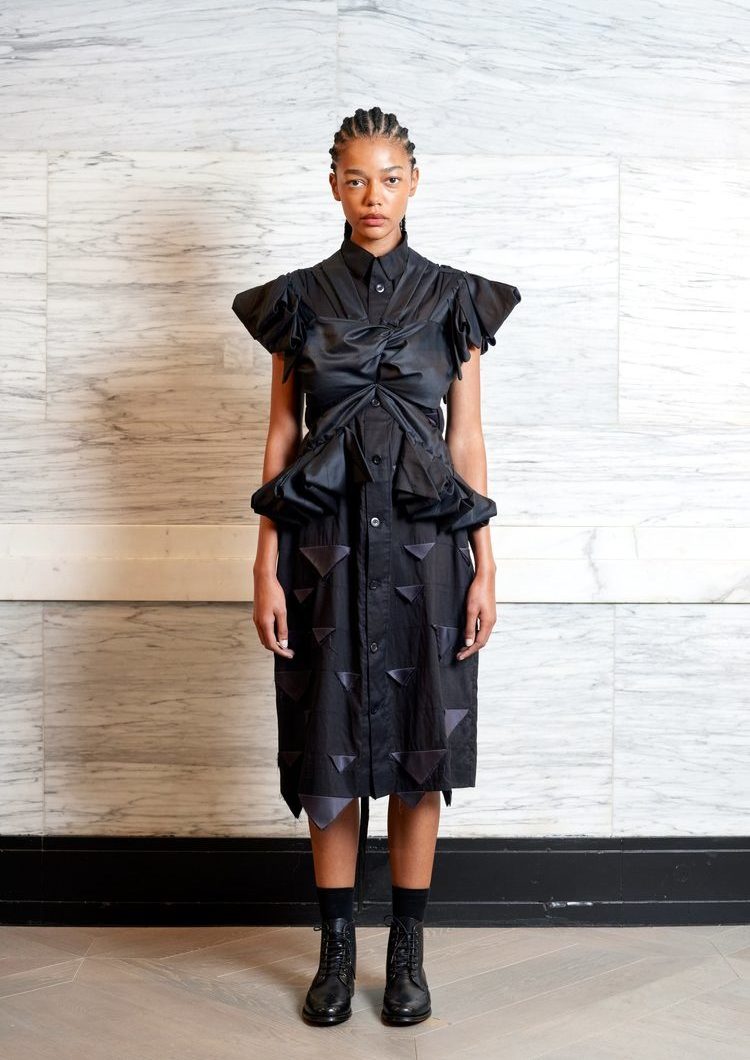
L: E.L.V. Denim R: Phoebe English SS24 ©Asia Werbel
“Customers are excited to engage more deeply with a designer and the clothes, they appreciate having something that works for them. It makes you feel incredible when you wear a piece made especially for you. We want to capture that special feeling.”
Patrick McDowell
There is a flexibility that comes with making to order, which means that brands can be creative with the way they sell. Cawley Studio, the unisex London label founded in 2017 by Hannah Cawley, takes a mixed approach, selling wholesale orders of its collections to retailers, and using any leftover fabric to create pre or made-to-order pieces that are available on its own site, along with a small amount of ready-to-ship pieces. Phoebe English, who has spent years honing a slow, considered approach to creating, offers one collection each year made from painstakingly sourced deadstock fabric and makes each piece on demand. The idea of seasonal collections becomes pretty fluid with this way of working – there’s no need to quickly discontinue a silhouette or constantly offer something new when you’re only making clothes when they’re wanted. On the website of gender-neutral London label LaneFortyfive, founded in 2016 by Tanmay Saxena, you can shop quilted jackets, relaxed tapered trousers and softly draping shirts across multiple capsules.
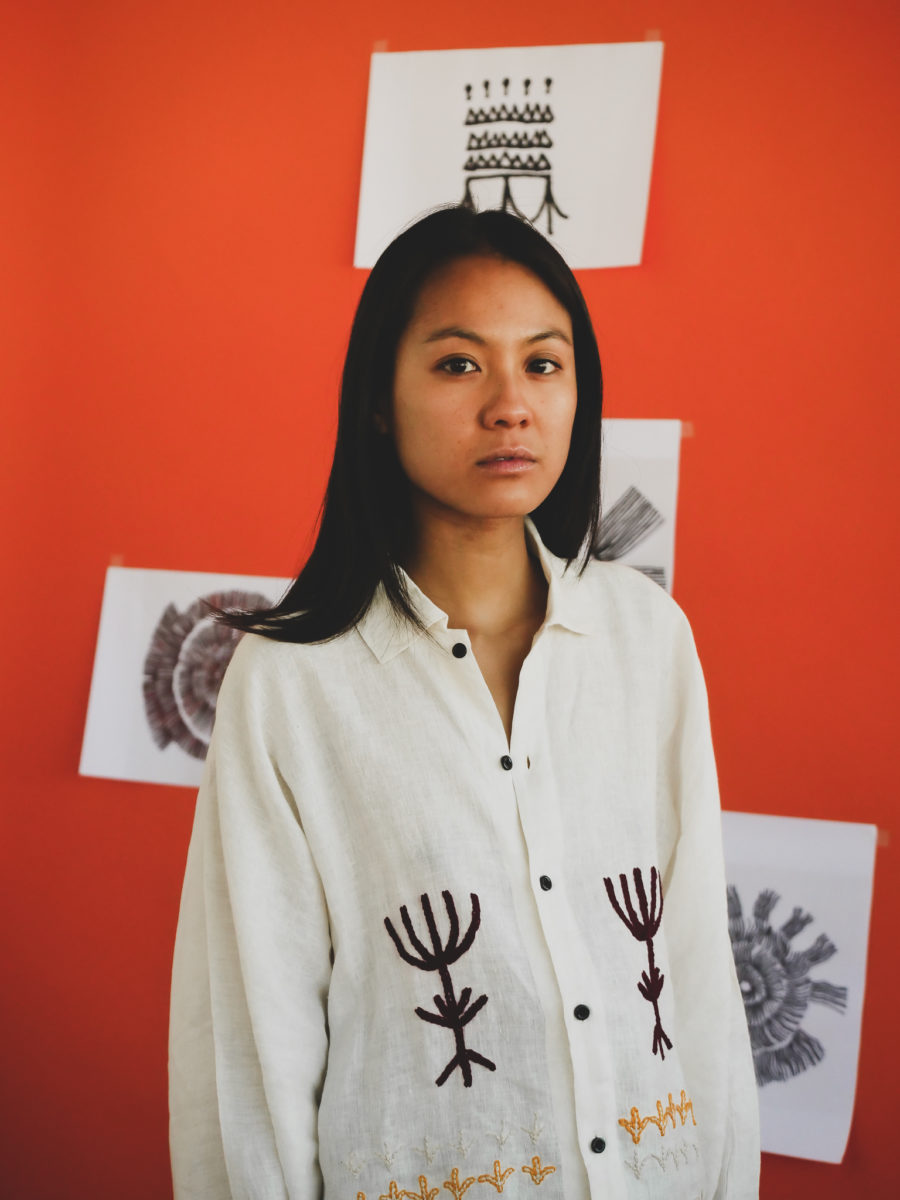
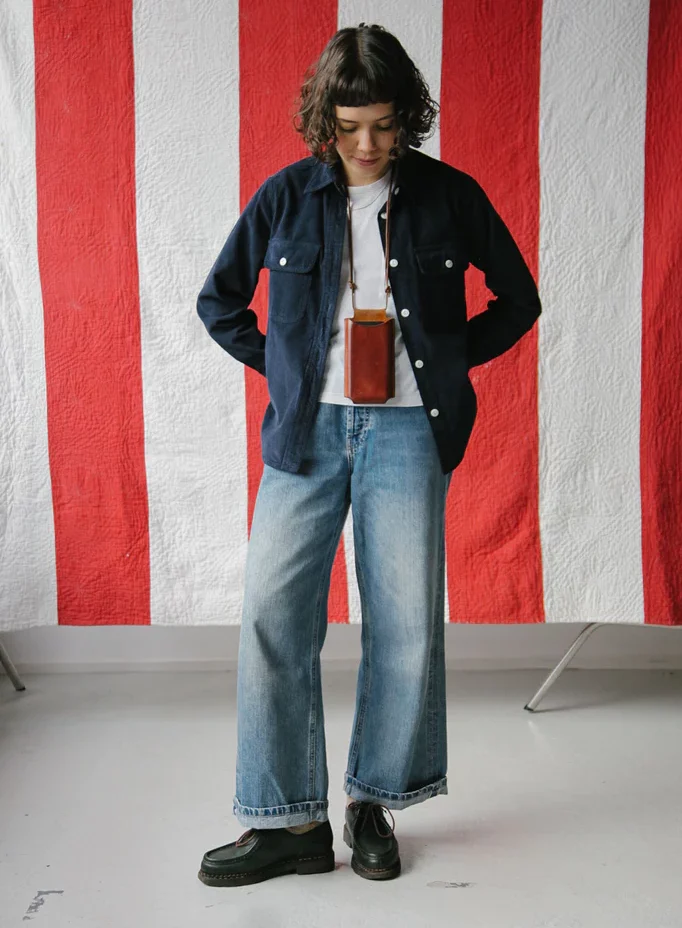
L: Lane Forty Five R: Paynter
It’s worth noting, too, that making a piece both to order and in limited numbers does nothing to harm its desirability. Ever since its launch in 2019, Paynter has been releasing beautifully constructed jackets in four small drops a year. Thanks to the brand’s meticulously thought-through details and a knack for storytelling and connection, the collections routinely sell out in minutes and their numbered labels are something of badge of honour for its loyal followers. It’s a sentiment that McDowell echoes. “Customers are excited to engage more deeply with a designer and the clothes, they appreciate having something that works for them,” he says. “It makes you feel incredible when you wear a piece made especially for you. We want to capture that special feeling.”

